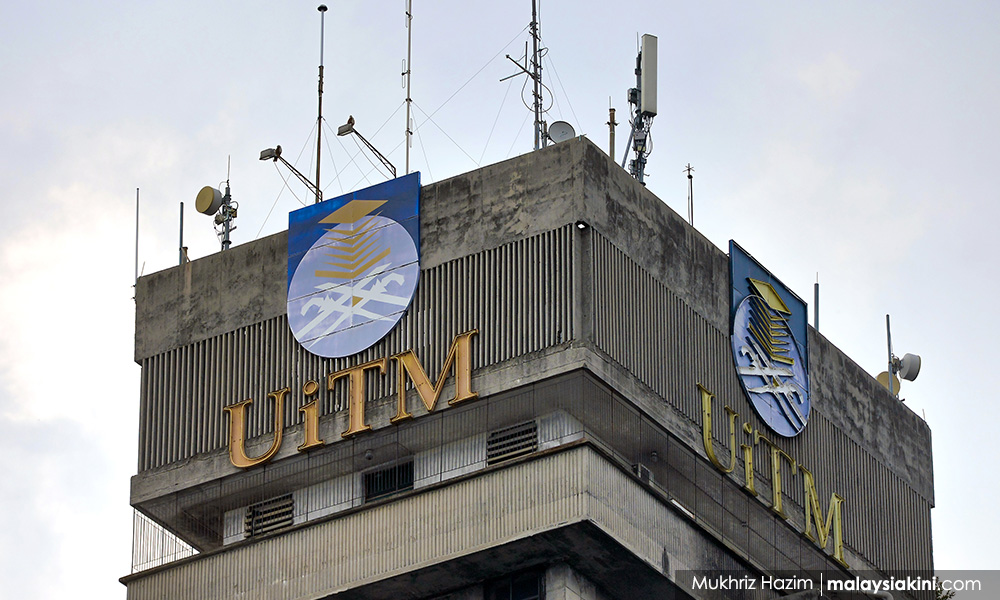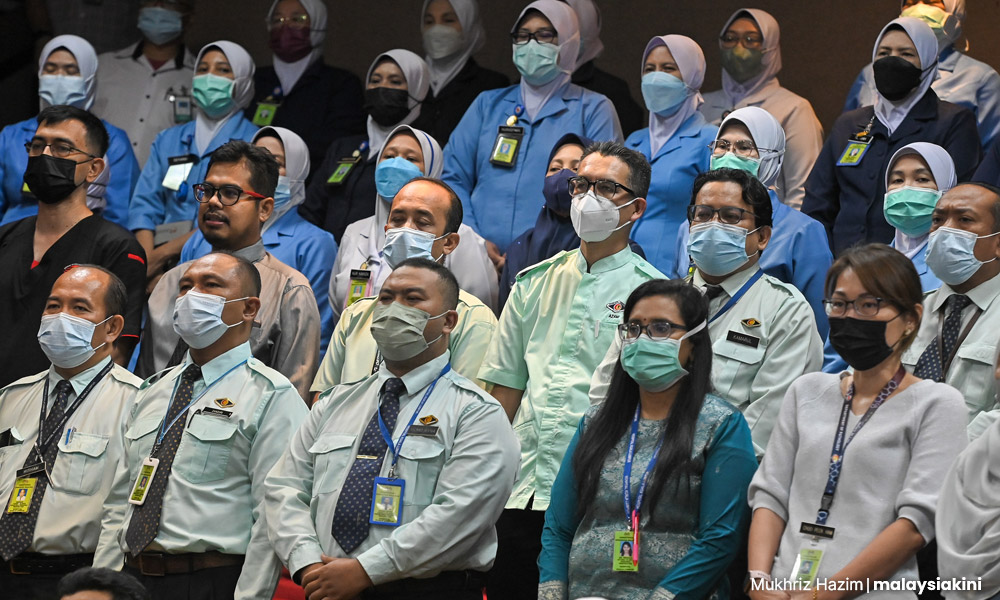I was trained by a black-dominant university with a handful of lecturers from India, local whites from the West Indies and some Trinidadian Indian lecturers. In my whole medical training, I had only encountered two Chinese Jamaican lecturers.
My alma mater the University of the West Indies’ (UWI) MBBS programme was recognised by the UK’s General Medical Council (GMC) for direct registration until 1998 when new EU regulations were introduced to accommodate medical doctors from other EU countries.
During my days as a medical student, the GMC came and inspected the university hospital and threatened to remove the UWI MBBS recognition if the quality of the hospital was not improved.
Instead of blaming the GMC for “racism” and “colonialism”, our university complied with the GMC's requirement and got more government funding to improve the university hospital’s conditions. It is now registrable through PLAB exams. Recognition by GMC was a pride and challenge that the university had tried to uphold by all means.
The UWI has had its own reputable postgraduate studies courses as well. Its Doctor of Medicine (DM) in Anaesthesiology is registrable with the GMC and Irish Medical Council.
Nonetheless, it has also recognised the interchangeability between the parallel pathway from foreign institutions, especially the Fellowships of the Royal Colleges in the UK, and their respective DM degrees.
Therefore, it is not right to claim “racism” or “colonialism” by more advanced countries’ refusal to recognise our own medical degrees when we ourselves try to impose a cartel over the medical profession.
As for the reason fiasco over the exclusive cardiothoracic surgery training right being given to UiTM rejecting other more prestigious foreign institutions, such as the University of Edinburgh’s FRCS parallel pathway in cardiothoracic surgery, and denying other local universities’ participation in having the same post-graduate programme is not constructive to the international image of our medical fraternity.
By doing so, does it make Malaysia’s universities, including UiTM, look taller and greater than other international prestigious universities? Inclusivity of other training pathways with a joint prudent effort overseeing the standard of training is the solution to this unnecessary fiasco.
I remember when UWI had a Chinese Jamaican woman candidate for DM in general surgery. She faced many hurdles as the only female candidate in a male-dominated field. Nevertheless, she passed her FRCS before her DM and returned to become a lecturer in the department.
There are great advantages to integrating the fellowship parallel pathway and university academic programmes. Both have much to complement each other. The known advantage of the parallel pathway is that it exposes candidates to more clinical experience by working in the actual clinical setting and studying at the same time.

A university’s master’s degree is more academic-oriented, and its graduates are supposed to get more involved in medical research than the clinically oriented parallel pathway which is more to train specialists for field practice.
Amid the unnecessary parallel pathway recognition fiasco, the authorities concerned and the public should know that, although many of us are not sponsored by the Malaysian government to finish our studies, we always enjoy serving the people as the medical fraternity, regardless of race and political convictions.
This is one of the vital professional ethics of the medical fraternity.
Serving the public without prejudice
Up to today, the proudest moment of my medical career was saving a Malay woman and her baby when I was serving as an obstetrics and gynaecology (O&G) medical officer (MO) in a district hospital.
She came down with severe hypertension during pregnancy and preeclampsia, and she later even developed heart failure and pulmonary oedema.
Working in a district hospital, we had an O&G specialist (of parallel pathway) covering us from another hospital which was a two-hour drive away.
One can imagine what sort of pressure it had on me. I was hoping the specialist would ask me to transfer the patient to his centre, but to my surprise, he instead wanted me to manage it right where I was.
In a panic, I even forgot the nearest source of help I could get. I consulted my fellow MO colleague who reminded me that we had an in-house physician (a graduate from a local university master’s programme) who could help us manage her high blood pressure and heart failure before I could proceed with a Caesarian section on her.
The physician helped us stabilise the patient’s blood pressure and resolve her pulmonary oedema, and I quickly proceeded to perform the Caesarian section.
The MO had to give the patient an epidural anaesthesia instead of general anaesthesia due to the patient’s severe condition, while the anaesthesiologist (also from an overseas parallel pathway) was giving instructions from another hospital a four-hour drive away.
We had a great team of Malaysians from both local universities and foreign graduates and specialists from both the parallel pathway and a local university, doing our best to serve the people without prejudice regardless of their social status and race.
After the Caesarian section, I kept the patient in the ward for more than a month and refused to discharge her due to even slight proteinuria (high level of protein in the urine). She practically begged me to let her go home sooner every time I did my ward rounds.
However, according to the guidelines then, preeclampsia patients had to be kept under observation if they were found to have even a trace of proteinuria.

I was just being orthodox and extra-prudent, considering that she lived in a remote Felda scheme, more than a two-hour drive to the nearest medical facility available.
Then my MO colleague discharged her when I was off-duty. Being a Malay female doctor, she could probably better identify with a Malay mother’s emotional need to be with her family.
I protested with a smile and a wink, but I could understand that she was trying to help discharge the patient to relieve the pressure on me a little.
This was a beautiful moment of us working together as a team regardless of race, gender and academic background in the patients’ best interests.
The most beautiful and rewarding moment in my medical career was when the woman’s husband came with a bouquet of flowers and a fruit basket for me on her follow-up visit!
They caught me by surprise as I thought I had just been there to carry out my duty. I felt extremely joyful on that day as if I had just received an award, and shared the fruit with our team of nurses and midwives who were happy with what we had achieved as a fraternity.
The medical fraternity has to be inclusive and yet prudent in order to serve the people without any prejudice according to our ethics.
The recent cardiothoracic parallel pathway debale should not have arisen at all if we are serious about uplifting the standard of our medical services and treating the medical profession as a means to serve the ill.
Lame political excuses
It is baseless to say that the UK GMC does not recognise our MBBS and postgraduate degrees due to “racism” and “colonialism”.
Universiti Malaya’s MBBS was “de-recognised” in 1985 because racial quotas rather than merits were applied in its student intakes.
If UiTM is going to repeat the same one-race-only student body, it would be counterproductive in getting any esteemed international recognition as a competent higher institution of learning, including its cardiothoracic surgery programme.
The narrative that FRCS Edinburgh (Cardiothoracic Surgery) for the parallel pathway is not registrable with the GMC is misleading. All foreign FRCSEd candidates sit for an international version of the exams which is equivalent to its domestic version, but it is to have certain social distinctions between them.
For any foreign specialists to be admitted to another country’s registration roll to practise, they need to go through a process of acclimatisation to get familiarised with the local health system, and interpersonal relationship to the actual clinical setting.
Oftentimes a country’s immigration policy plays a vital role in this, and it has very little to do with the academic qualification.
The MMC apparently had the facts interpreted the other way around. The four cardiothoracic surgeons were trained locally at the prestigious IJN while sitting for the academically renowned FRCS Ed exams of an international version.
That not only provides them with the necessary competent academic requirements but they have also long been acclimatised to the domestic clinical settings and should have been allowed to serve in the public health service system facing an acute shortage of cardiothoracic surgeons.
Nonetheless, despite the “racism” and “colonialism” claims, I was surprised to find out that Universiti Sains Malaysia’s Master of Anaesthesiology degree was once recognised by the GMC (for the purpose of direct registration) for a certain period. The UWI’s DM in Anaesthesiology is still recognised by both the GMC and the Irish Medical Council.
It seems the UK is facing a shortage of anaesthetists and specialists in some other fields. The UK has to fill in the vacancies by prioritising the anaesthetists from the EU. After Brexit, it is expected to look for more specialists from the British Commonwealth countries due to changes in the political landscape and their need for specialists.
Other Malaysian universities should look into the reasons why USM’s Master in Anaesthesiology was once recognised by the GMC, while other MBBS and master’s degrees were not, instead of finding lame political excuses such as “racism” and “colonialism”.
Getting overseas recognition of both local MBBS and postgraduate medical degree programmes would uplift our own postgraduate medical specialists’ training and enhance our medical research capacity.
Giving exclusive cardiothoracic parallel pathway recognition to UiTM and putting down other foreign institutions do not make our Malaysian medical fraternity more integrated.
Introducing counter-productive politics and cartels into our higher education institutions not only divides our nation but adversely affects our international standing as an international hub for medical research.
This UiTM cardiothoracic surgery parallel pathway mess is just an incidental lesson for us to do some soul-searching. - Mkini
Dr BOO CHENG HAU is a practising physician and was a two-term Skudai assemblyperson.
The views expressed here are those of the author/contributor and do not necessarily represent the views of MMKtT.




No comments:
Post a Comment
Note: Only a member of this blog may post a comment.